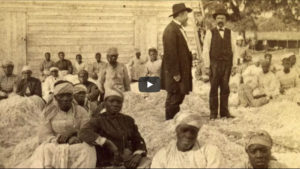Former San Antonio Mayor Julian Castro — a candidate for president of the United States — has opened up a wide-ranging debate topic that needs a full airing.
However, the Democratic candidate, has to go a huge distance to persuade me of the need to pay reparations for the descendants of slaves.
I oppose such reparations understanding how it might look to those who favor them. I want to be crystal clear on a couple of key points.
First, slavery is the greatest sin this government has ever committed against Americans. I totally understand the pain it caused those who lived under human bondage. They were treated as property. They were considered to be three-fifths of a human being. They were bought and sold the way people buy and sell, oh, livestock.
They were “emancipated” in 1863, during the height of the Civil War, which was being fought over the issue of slavery. Slaves were set free more than 150 years ago.
Generations of African-Americans have come along since then. Yes, many of them have endured hatred, indignity, violence, outright discrimination on the basis of their race. However, this country has legislated equality for all Americans. I understand full well that those laws haven’t erased bigotry from all Americans’ hearts.
My concern over the issue of reparations deals with the time that has passed and the many generations that have come and gone since those terrible days when we enslaved fellow human beings.
Are there “direct descendants” of slaves? Sure. Have those descendants suffered directly from the enslavement of their great-great-great grandparents? Well, that is a highly debatable point.
It’s the timing of this proposal that Julian Castro has pitched.
Yes, our government has paid reparations to Japanese-Americans over their internment during World War II. But that atrocity occurred not quite 80 years ago. There are former internees still living to this day. Their children, grandchildren and great-grandchildren have been given some remuneration over what President Roosevelt decreed after the United States entered World War II; FDR feared Japanese-Americans would be more loyal to their ancestors than to the country of their birth, so he rounded ’em up along the Pacific Coast and sent them packing to concentration camps inland.
This idea of paying reparations for those descended from long-deceased slaves, though, gives me serious pause.
Do we stop working toward a “more perfect Union”? Of course not! Such a task involves eradicating bigotry and race-based hatred whenever and wherever we see it.
Reparations? That’s a bridge too far.
